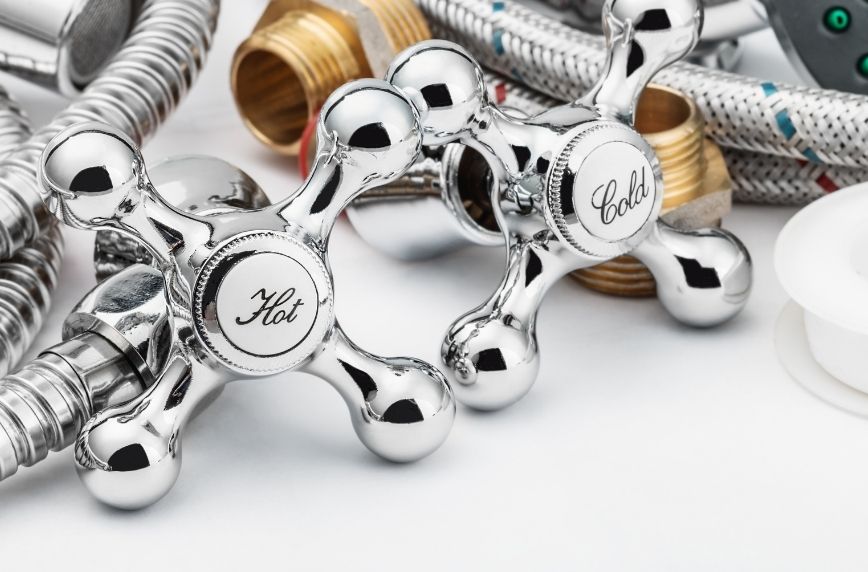It’s a jargon-filled world out there. Pros in all fields have their own shorthand, acronyms, and names for things that they understand but that laypeople may not. Plumbers are no exception. They may use everyday words to mean something very different than you think, especially if you’re a first-time homeowner and unfamiliar with the wonderful world of home maintenance. Understanding common plumbing terms will help you decipher what they’re trying to say.
Bleed: Nope, not referring to what happens when you cut yourself. To a plumber, “bleeding” means letting air out of pipes by opening a valve. In homes with hot water heat, for example, bleeding the pipes lets out air so that hot water can flow more consistently. This can reduce the pressure in the pipe. You might have to call a plumber who works on hot water heating systems to flush and refill the system.
Branch: Not from a tree. A branch is a pipe or drain that carries wastewater from a fixture, such as a sink or a tub, to the drain’s “soil stack,” the vertical sewer pipe that carries the wastewater down to the drainpipe under the floor in your basement or slab.
Fall: Don’t worry, not the “slip-and” kind. Plumbers use the word “fall” to refer to the slope or angle a pipe must have to allow drainage. This is also known as pitch—as in angle, not baseball or music.
Main: Plumbers often use the term “water main” to mean the primary water service pipe. But a water main is also what the city water supply pipe is called. So, there’s more than one type of main. If a plumber says the problem is in the main, ask if “main” refers to the city main or your water service pipe.
Trap: Not a way to catch critters. It’s the S-, P-, or U-shaped bend in drainpipes that prevents sewer gas from coming back through the pipes and into your home.
Water hammer: It sounds like a liquid version of Poseidon’s trident, but “water hammer” refers to the noise that pipes make when fast-moving water is turned off suddenly. It may be caused by pipes that are too small.
Over years of homeownership (or vigorous online searching), plumbing jargon becomes less obtuse. You might even dazzle your local hardware store when you toss around common plumbing terms such as “flapper valve” or “flange.”
Are You a Professional?
Requests for your services are coming in left and right. Let’s connect and grow your business, together.


